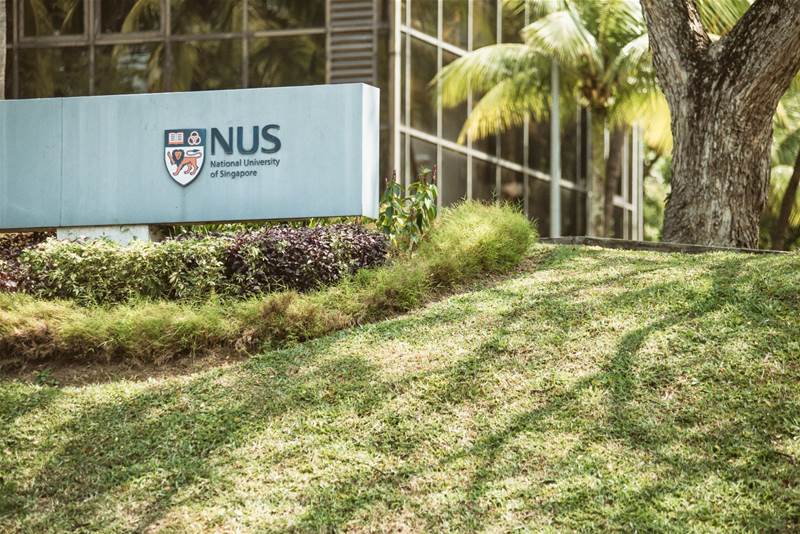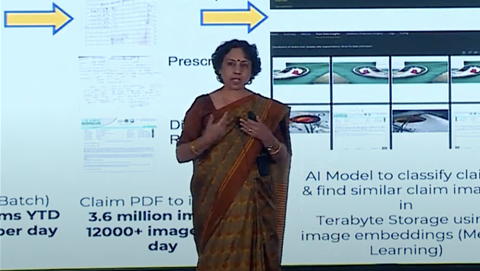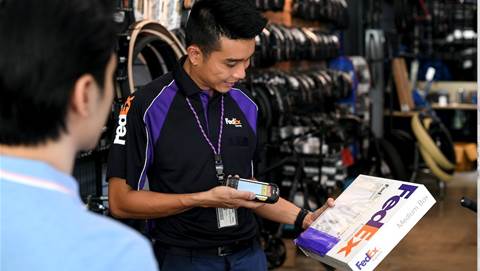The National University of Singapore (NUS) is setting up a 5G-enabled integrated operation centre (IOC) which would provide live dashboard updates for key indicators such as campus security, video analytics and energy efficiency, among others.
As a part of this effort, the university has partnered with a local telecommunications company, StarHub, to use the latter’s 5G enabled internet of things (IoT) platform.
NUS is Singapore’s oldest university, set up in 1905, and is located on a sprawling campus in the western part of the city.
In one of its ongoing projects, the university is trialling the use of 5G-enabled drones for building façade inspection as part of facilities maintenance.
Instead of deploying people and heavy machinery to do the inspection, the drones, which are equipped with high-resolution cameras, can collect video that is run through artificial intelligence (AI) algorithms to “detect anomalies in real-time”, Koh Yan Leng, NUS’ vice president for campus infrastructure said
This reduces the response time by the maintenance crew and ensures that such building anomalies are attended to, Koh said.
Autonomous delivery
He added that the university is also using 5G connectivity to increase the efficiency and accuracy of its autonomous food delivery service.
High-speed connectivity facilitates quicker transmission of data to autonomous vehicles, which results in shorter waiting times and improved service quality for consumers, as the delivery processes are expedited, Koh said.
“As we continue to delve into new and innovative ways to implement 5G in our processes, we will explore greater use of AR/VR, (augmented reality/virtual reality) to create more immersive environments for education and research,” he said.
Koh said 5G enabled IoT services, “coupled with industry-relevant solutions developed in partnership with StarHub” will allow NUS to build new capabilities.
These initiatives are part of a collaboration announced last month between the university and the telco to integrate the latter’s 5G and IoT solutions into the university’s smart campus innovation to support the university’s goal of becoming a “smart, safe and sustainable campus”, a joint declaration by the two entities said.
Live trials
NUS and StarHub plan to undertake “live” trials of several projects over two years during which time they will exchange knowledge, identify gaps, and co-develop solutions in smart campus facilities management.
Tan Shui-Min, NUS’ chief information technology officer (CITO), said another initiative by the university was Singapore’s first 100 percent solar-powered outdoor wi-fi network, using 5G backhaul.
Tan said the outdoor network complements the university’s existing indoor wireless setup.
She noted that typically a network solution for outdoor wireless coverage would require the laying of underground power and fibre optic cables in an “invasive, labour and resource-intensive” manner and would be “costly”.
“Breaking away from the norm, the NUS IT team, together with StarHub, developed a solution that implemented Singapore’s first outdoor wireless network using 5G as backhaul,” Tan said.
She added that the actual onsite installation for each setup “took just four days”, in comparison with a minimum of three weeks that would have been needed for excavation and reinstatement work done in the “traditional way”.
Tan said the outdoor wi-fi network is currently deployed in two open areas within the campus, and “each has its own set-up that is self-sufficient and cost-effective, as all its equipment are powered with solar panels”.
“It comes with enhancements for weather-resiliency and up-time in low-light environments such as in cloudy weather or during the night time,” she said.
Tan added that with 5G backhaul, “users can look forward to reliable and high-speed connectivity, including bandwidths able to support the best video streaming experience”.
Charlie Chan, StarHub’s enterprise business group chief, said that by partnering with NUS, the telco is “capitalising on 5G to build a smart sensor network and generate new insights, for more agile decision-making and greater workforce productivity”.
“The solutions we create will drive business success for organisations, as they transform their processes, operations and infrastructure for their stakeholders in this digital-first world,” Chan said.
Koh said that a smart campus will provide “valuable data to develop key strategic decisions in making the campus more environmentally sustainable”.
“This will also ensure we have a smarter workforce equipped with the latest digital tools and knowledge to transform the way we operate,” he said.









